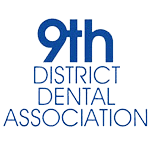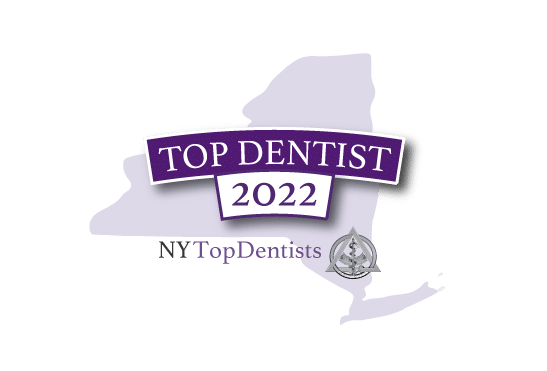
Pre & Post Care Info
Denture & Partial Denture
Proper Use
- Place your appliance in your mouth using your fingers–do not bite it into place.
- Do not wrap your removable appliance in a napkin or paper towel–you may accidentally throw it away!
- Do not sleep in your appliance. This will prevent the collection of bacteria, which can cause inflammation and infection.
- Store your appliance in its case away from direct sunlight and heat.
- Please be sure to bring your denture or partial denture to your dental appointment(s).
Daily Cleaning Instructions
- Rinse with warm water as soon as you remove your denture or partial denture to eliminate debris or plaque and lightly brush with a soft or very soft toothbrush.
- Never soak your denture or partial denture in any liquid other than water.
- We recommend using Fresh Guard Soak Crystals with lukewarm water for cleaning. Toothpaste can be too abrasive and can damage your appliance.
Night Guard
Proper Use
- Wear your night guard all night. If you find this a challenge, start wearing it a few hours each day, and gradually work up to wearing it for the entire night.
- If your bite feels off, uneven, or you feel any discomfort, don’t hesitate to stop wearing it, and give us a call.
- Rinse your night guard well with water before putting it in your mouth with your finger–versus biting it into place.
- Store it dry, in its case, in a safe place away from direct sunlight. Do not wrap it in a napkin or paper towel–it could accidentally be thrown away.
- IMPORTANT: Dogs love night guards, so always keep yours in a safe place.
- Bring your night guard to your dental and hygiene appointments, so we can clean it and examine it for wear and correct fit.
Daily Cleaning Instructions
- Rinse with warm water as soon as you remove your night guard to eliminate debris or plaque and lightly brush with a soft or very soft toothbrush.
- Never soak your night guard in any liquid other than water.
- We recommend using Fresh Guard Soak Crystals with lukewarm water for cleaning. Toothpaste can be too abrasive and can damage your appliance.

Oral Surgery
Patient Guide
Please arrive 15 minutes prior to scheduled appointment time to finalize paperwork and financial arrangements
Before Your Appointment:
-
Any patients under 18 years of age must be accompanied by a parent or guardian.
-
Please wear a loose-fitting short sleeve shirt and comfortable clothing.
-
Please wear flat soled shoes with ankle support like sneakers (no high heels).
-
Please leave contact lenses, all jewelry, and watches at home.
-
Please do not apply make-up, perfume, or cologne.
-
Please brush your teeth and rinse thoroughly.
-
If prescribed medication at consultation, please take as directed prior to appointment.
-
You may take this with no more than half a glass of water.
-
Please have ice packs available at home.
-
Please have Advil® or Tylenol® available for after the procedure.
-
Alcoholic beverages should be avoided 24 hours before and 7 days after your procedure.
-
Smoking must be avoided 24 hours before and 72 hours after your procedure.
Take all of your regular medications with a minimal amount of water unless you are instructed to do otherwise by a doctor in this office or by your primary medical doctor.
If you are scheduled to have
IV (Intravenous) Sedation:
DO NOT EAT OR DRINK 6 HOURS PRIOR TO PROCEDURE including water and coffee. If you need to take medication, please take them with no more than a few sips of water. Any questions, please call our office. We reserve the right to cancel or postpone surgery if instructions are not followed.
A responsible adult must accompany the patient to the office and drive the patient home.
Plan to rest for the remainder of the surgery day. The patient should not drive a vehicle, operate any machinery, or make important decisions for 24 hours following intravenous anesthesia.
Please have a responsible adult at home to care for you. Be sure to rest and take it easy for the first few days, watch a few movies and have a relaxing recovery!
If you are scheduled to have Nitrous Oxide Analgesia (N2O):
You may not have anything to eat or drink (including water) for 3 hours before the appointment unless otherwise directed.
If you have an illness such as a cold, sore throat, or stomach or bowel upset, please notify the office.
If, for some reason, you are unable to keep your surgery appointment, we require a 48 hour notice of cancellation.

Oral Surgery
General Information
These are general instructions and not all of these instructions may apply to your recovery.
Common sense will often dictate what you should do; however, when in doubt, follow these guidelines or call our office at any time for clarification.
The First Hour After Surgery
Bite down firmly but gently on the gauze packs that have been placed over the surgical area(s). Make sure that the gauze remains in place, undisturbed for 30 minutes, then replace with clean gauze. You can also use a damp tea bag in place of the gauze if there is trouble controlling bleeding beyond 4 hours post surgery. No eating, drinking, or sleeping with gauze in your mouth.
If you experience continued heavy bleeding while biting on the gauze, it means the gauze is in the wrong position and not pressing on the extraction site. Repeat the following steps:
- Remove gauze.
- Reposition gauze or tea bag so that pressure is applied to the bleeding site.
- Bite on the gauze for 30 minutes to 1 hour.
Bleeding and Oozing
Intermittent oozing is normal for up to 24 hours and can last longer if you are taking blood thinners. The blood will mix with saliva, so it is important to determine if there is active bleeding. The above instructions can be repeated, and then the gauze can be discontinued when the bleeding has subsided. Do not go to sleep with any gauze in your mouth.
Pain
Unfortunately, many oral surgery procedures are accompanied by some degree of discomfort. There are several helpful strategies to get you through the process. Some form of pain reliever should be taken before the numbness goes away. Over-the-counter medications like ibuprofen (Advil® or Motrin®), acetaminophen (Tylenol®), or aspirin are adequate if there are no allergies, they have been tolerated in the past, and they do not interfere with any other medications.
For more involved procedures, a prescribed narcotic can be taken. The narcotic can also be alternated with ibuprofen, if there are no allergies and has been tolerated in the past, and your doctor has instructed you to do so. Taking your medications with food will decrease the chance of nausea. Remember, narcotic pain medications will impair your judgment and reflexes, so driving and operating heavy machinery is to be avoided. Never take narcotics with alcohol or other medications without expressly discussing with your doctor.
Antibiotics
Antibiotics are prescribed to treat or prevent infections, so take all of the medication as directed. If you experience any adverse reactions, such as nausea, rash, or itching, discontinue the medication. A rash or itching may indicate an allergic reaction to a medication. Antihistamines (Benadryl®) will usually counteract hives, rash, and itching. Swelling of the lips or tongue or difficulty breathing may represent a more severe allergic reaction, and you should seek medical attention immediately. We recommend taking a probiotic (such as Culturelle®) in addition to the antibiotic to minimize the potential of stomach or GI upset.
Swelling
Swelling from oral surgery is normal and reaches its maximum in 48 hours. Keeping the head elevated with 2 pillows when lying down can minimize facial swelling. Swelling can also be minimized by applying cold compresses to your face every hour (30 minutes on, 30 minutes off) for the first 48 hours. Failure to alternate on and off can result in the opposite effect and cause additional swelling. After 48 hours, warm compresses will help reduce the swelling. These should be continued (30 minutes on, 30 minutes off) until the swelling has subsided.
Rinsing
Avoid rinsing the mouth for 24 hours after surgery. It may disturb the blood clot. The following day, you may begin gently rinsing with warm (not hot) salt water. Dilute 1 teaspoon of salt in 8 ounces of warm water and rinse gently 3 or 4 times a day for 1 week. If you have been given a prescription for chlorhexidine gluconate (Peridex™), saturate a gauze pad and place over the surgical site for 1 minute, twice daily, for 7–10 days.
Spitting
Do not spit because this action can disrupt the blood clot and/or promote bleeding. If needed, open your mouth and let any saliva or blood drip into the sink. Also, avoid drinking through a straw or creating any suction in your mouth as this may also promote bleeding.
Brushing
Avoid brushing near the surgical sites the day of surgery, since there may be stitches that can be disturbed, as well as some soreness and swelling. Begin your normal hygiene routine as soon as possible and gently brush the areas you are comfortable with.
Irrigation Syringe
If you have been given an irrigation syringe, start using 1 week after the procedure. Fill it with warm water or Peridex™ if prescribed and use gently to clean the socket. The socket will be closing up from the bottom and after 3 or 4 weeks will close up, and food will no longer get stuck. It is normal to feel a hole after the tooth is removed. This will eventually heal completely and bone will fill in the socket.
Diet
A nutritionally balanced diet is very important. During the first 24 hours, eat cool/room temperature soups and soft foods that are easily chewed and swallowed. Begin with clear fluids (juice, broth, tea, Jell-O) and progress slowly to more substantial foods. Do not use a straw for 1 week as this may disturb the blood clot and/or promote bleeding. Remember, it is important to maintain nutrition for optimal healing to occur. Do not skip meals. Take any prescribed food supplement as directed. If you are a diabetic, maintain your normal diet and take medication as usual.
Nausea
Drink a carbonated beverage, such as ginger ale or cola, every 30 minutes until nausea subsides. You may also eat saltine crackers to help alleviate symptoms. If nausea persists, please call our office.
Dry Socket
When a dry socket occurs, there is constant pain that radiates to other areas of the jaw, teeth, and ear. Symptoms of a dry socket will not typically occur until the third or fourth post-operative day, and it results from a loss of the blood clot in the socket. This is similar to a scab pulling off the skin. All the surrounding areas will look normal. If you do not have improvement after the first few days following the procedure, please call the office. A medicated dressing may need to be placed to resolve the discomfort.
Bruising
Sometimes bruising may occur 24 or 48 hours after surgery has been performed. This bruising may last several days and as long as 2-3 weeks. Application of warm compresses to the involved area as discussed above (30 minutes on, 30 minutes off) will expedite the healing process.
Sharp Bony Edges
If you feel something hard when you place your tongue on the surgical site, you may think it is part of your tooth. This may be the hard, bony wall that originally supported the tooth. Leave it alone, and it will heal itself.
Our interest in your care does not cease with the completion of the surgery. If any difficulty arises at any time, please call us, and we will see you for follow-up care.

Implants
The first 2 weeks after surgery are very important.
Healing of the bone around implants takes 3–6 months.
Diet
A soft, mild, and nutritionally balanced diet should be consumed for 2–4 days (or longer if necessary) after your surgery. You should chew food on the opposite side of where the implant(s) was placed for 2 weeks (if possible). As the tissue around the implant heals, you can return to your normal eating routine.
Bruising
If an implant protrudes through the gums, the metal must be kept clean. Use a cotton-tipped applicator or soft toothbrush and gently clean the implant and adjacent tooth surfaces. Be careful around the sutures.
Denture or Flipper
On the day of your surgery, you will be given specific instructions regarding when you should wear your denture or flipper. Possible options may include: Leave the denture or flipper out of your mouth until you are instructed to wear it. Leave your denture or flipper in place for 48 hours then remove it. Wear the denture only as instructed by your doctor. Wear your denture or flipper as instructed.
Soft Diet Instructions
Follow for the first 3 weeks, avoid any foods that contain nuts, seeds, popcorn, rice, corn, or chips as these may become stuck in the extraction site. All food and drink should be consumed chilled/cool until numbness wears off.
Diet
Patients who are well prepared for their procedure usually have a smoother recovery.
Food List
hearty soups (cream of asparagus, lentil, minestrone, split pea)
juice (cranberry, apple, grape) avoid citrus juice for a few days
herbal tea
Jell-O
yogurt (soft or frozen)
cottage cheese
pudding/custard
soft fruit (banana, papaya, berries, cooked peaches or pears)
applesauce
popsicles
ice cream & milkshakes
fresh cooked vegetables
fruit smoothies/protein shakes
oatmeal/cream of wheat
eggs (scrambled, soft boiled, omelettes, egg salad)
mashed potatoes
rice/risotto
tofu
pasta (plain or with sauce)
fish (soft white fish, sole, trout, snapper)
Avoid the following foods the first 7 days after surgery:
foods that are difficult to chew
french bread loafs & baguettes
alcoholic beverages
Avoid the following foods the first 3 weeks after surgery:
Shopping List
▢ food
▢ Advil®
▢ Tylenol®
▢ ice packs











